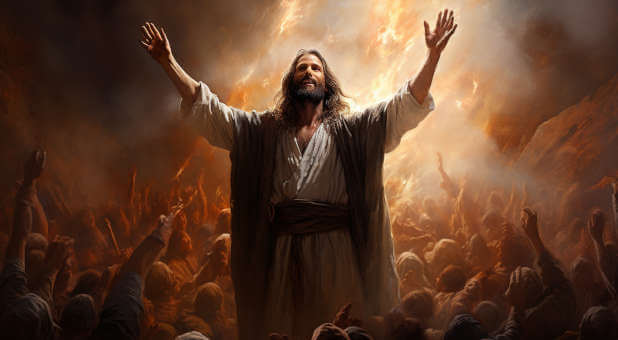Amid a decline in religious belief across the United States, an unexpected phenomenon is gaining traction—a surge in exorcisms, the spiritual ritual aimed at purging individuals from demonic possession.
This trend is not limited to the U.S. alone; it extends globally, with Latin America experiencing a notable increase.
Andrew Chesnut, Chair in Catholic Studies at Virginia Commonwealth University, points to the Pentecostal movement as the driving force behind this surge. Pentecostals, a branch of Christianity emphasizing the power and gifts of the Holy Spirit at work in today’s world, has become a dominant force worldwide.
Originating in Topeka, Kansas, in 1901, and taking the world by storm as a movement in Los Angeles in 1906 at the Azusa Street Revival, Pentecostals openly embraced deliverance from evil spirits in the 70s-80s, bringing the ministry into the mainstream. In response to the growing demand, the Catholic church expanded its exorcism practices, training more priests to meet the needs of believers.
Chesnut notes, “It’s a free market of faith, and if you want to compete, you have to offer the goods and services that people want.”
Professor Deepak Sarma from Case Western Reserve University highlights the U.S. as a historical hub for spiritualism. The nation’s emphasis on individuality has fostered an environment where individuals can select elements from various religions. This “toolbox approach” redirects people to independently engage in practices such as exorcism without adhering to traditional religious institutions.
Sadly, this is a sharp departure from the biblical foundation of America, where there was one God, and it was Him the country honored, and no other.
“Many more people have moved away from institutional religion toward ‘Spirituality,’ where individuals are able to pick and choose doctrines, practices, rituals and in this case purifying/healing endeavors from across any number of religions. This toolbox approach empowers individuals to be able to act on their own, without bowing before religious institutions and hierarchies,” Sarma says.
Despite this longstanding potential for exorcism practices, why is the current surge happening now? Chesnut proposes a connection between the rise in exorcisms and global anxiety about world events. In times marked by challenges like the pandemic and geopolitical conflicts, individuals seeking solace interpret the surge in exorcisms as a rational response to the perceived signs of an impending apocalypse.
In a world filled with uncertainties, the uptick in exorcisms reflects a search for spiritual answers and deliverance from the anxieties of our troubled times.
Yet with all things, Satan offers false copycat substitutes for God’s true deliverance power.
The need for biblical discernment to separate the true moves and power of God from the fake is of paramount importance, because there are many false prophets, teachers and healers in the world falsely claiming divine authority.
As Paul writes, test these teachings and events with Scripture (1 Thess. 5:21), and as Jesus Himself exhorts His followers, “Therefore be wise as serpents and harmless as doves,” (Matt. 10:16).
To learn more about deliverance ministry, click here.
Join Charisma Magazine Online to follow everything the Holy Spirit is doing around the world!
James Lasher is Staff Writer for Charisma Media.














































